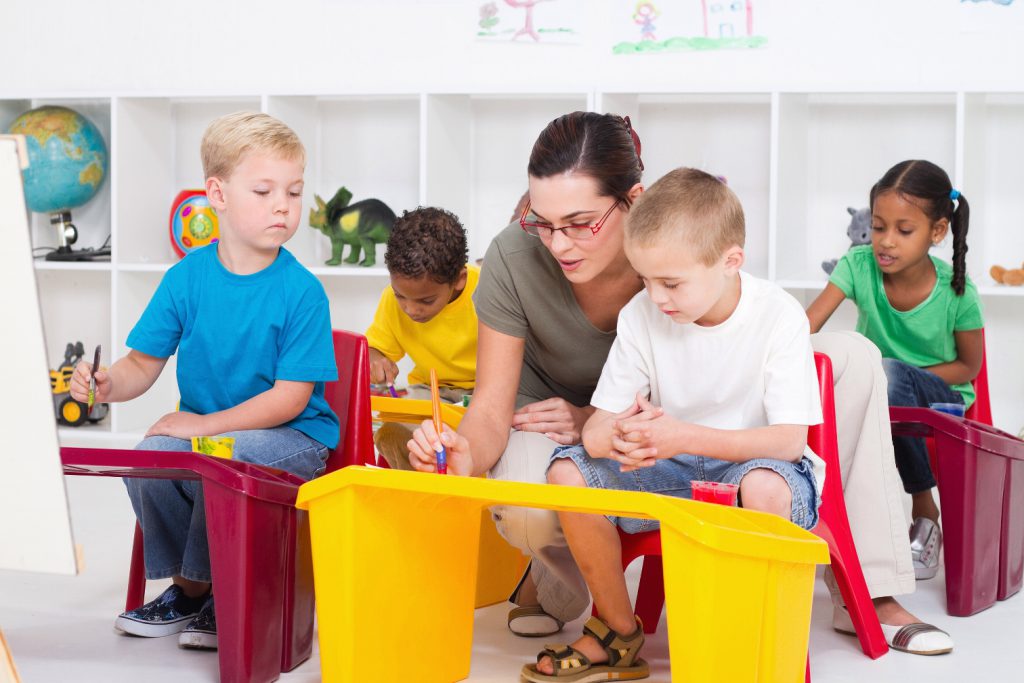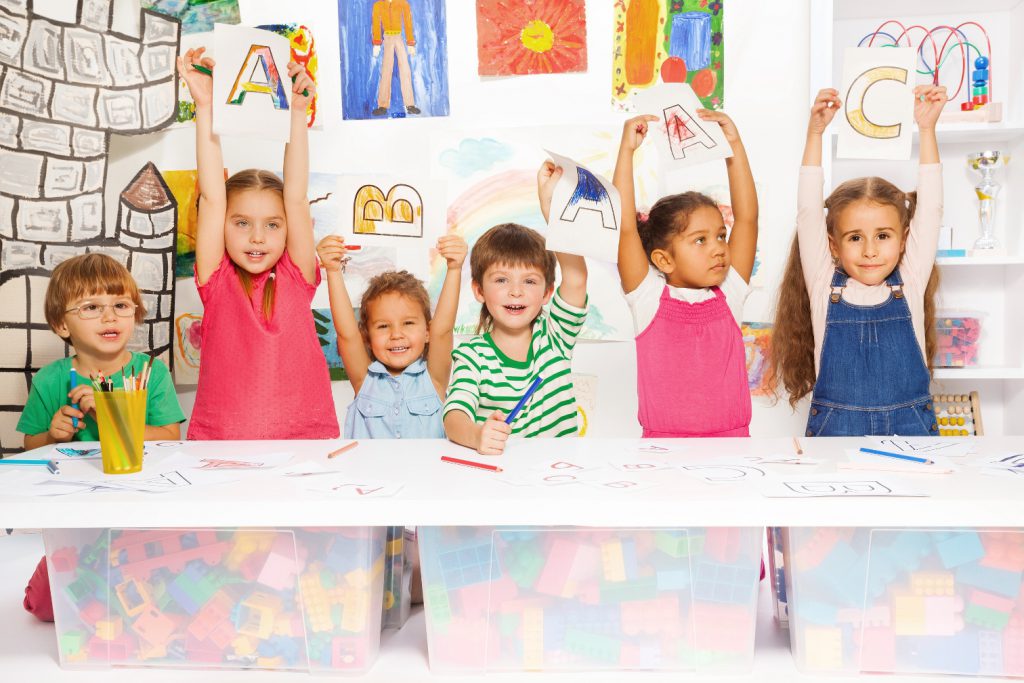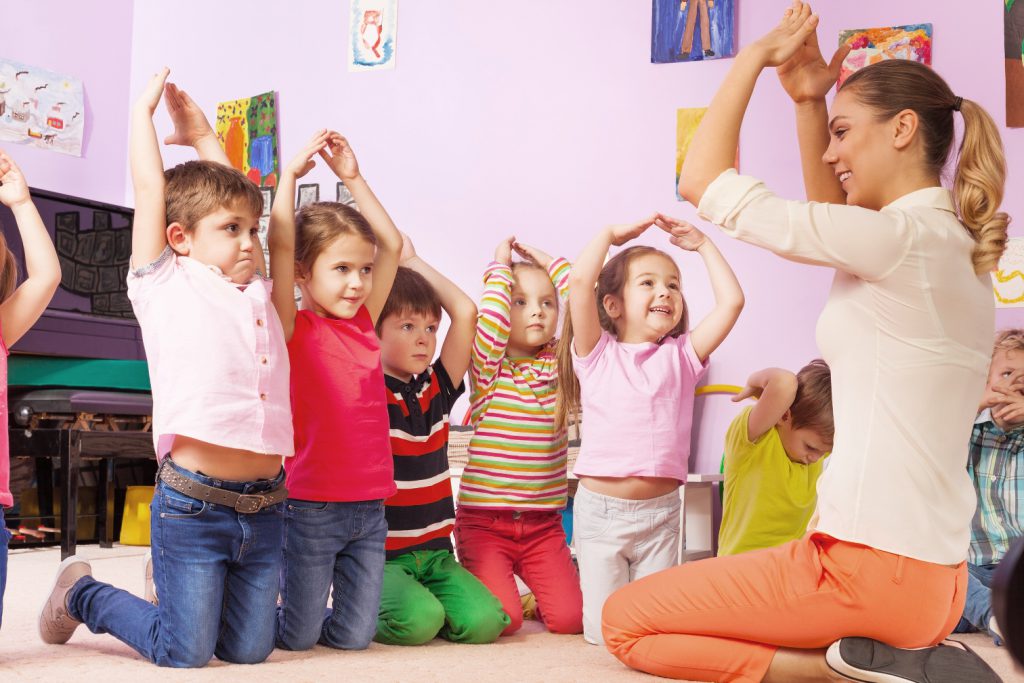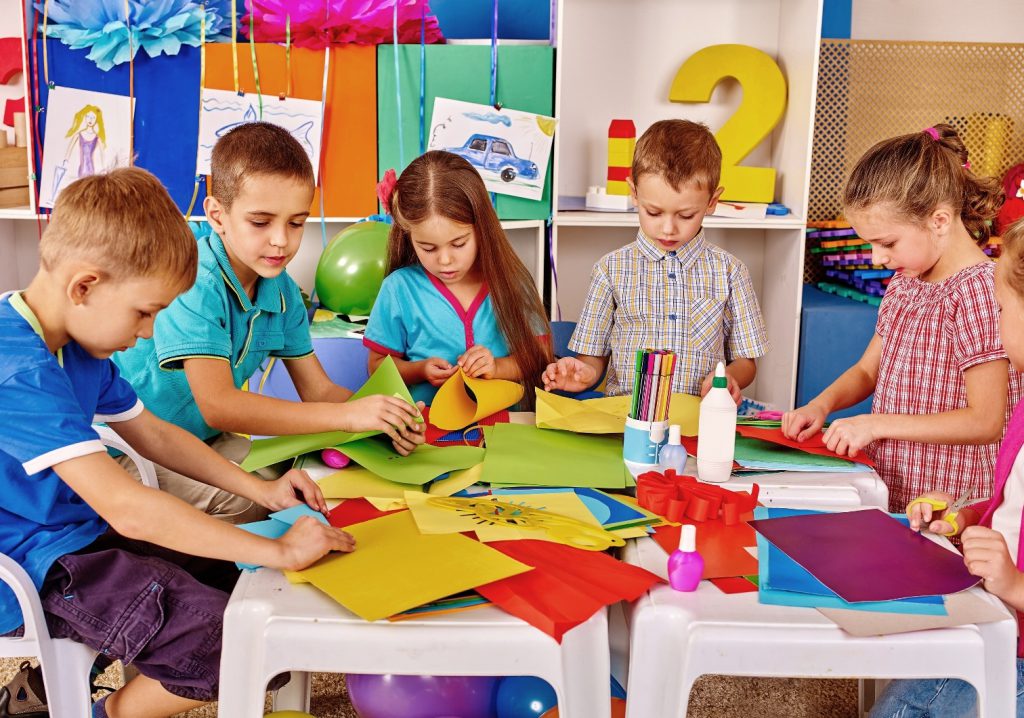Understanding Kindergarten Testing
Kindergarten is a major event in your child’s life. It’s a point of transition from a safe environment into new, unfamiliar surroundings, with many other children, teachers and a different daily routine. Also, many schools administer kindergarten testing as a readiness evaluation tool. As a parent, your job is to help your little one cope with all these changes as painlessly as possible.

 Fine motor skills (precise and coordinated use of smaller muscles, such as hands, fingers, wrists) are necessary for writing, typing, turning pages, eating, etc. In kindergarten, your child will use them for drawing, coloring, cutting paper and so on.
To practice these skills, encourage the child to draw objects, cut paper into various shapes using child-safe scissors, or write its name. The child can also practice these skills with playdough by rolling it, cutting it into shapes, etc.
Listening skills are essential so your child can understand what is being said and interact properly. They can be trained through rhyming, verbal interaction, repeating the names of favorite toys and sound-guessing games.
Cognitive skills can be promoted by sorting toys, objects or clothes according to color, shape or size. Encourage the child to count objects aloud or repeat the names of things you see while in the park or in the car.
Teach your child the difference between up and down, off and on, little and small, slow and fast, and other opposite words.
Fine motor skills (precise and coordinated use of smaller muscles, such as hands, fingers, wrists) are necessary for writing, typing, turning pages, eating, etc. In kindergarten, your child will use them for drawing, coloring, cutting paper and so on.
To practice these skills, encourage the child to draw objects, cut paper into various shapes using child-safe scissors, or write its name. The child can also practice these skills with playdough by rolling it, cutting it into shapes, etc.
Listening skills are essential so your child can understand what is being said and interact properly. They can be trained through rhyming, verbal interaction, repeating the names of favorite toys and sound-guessing games.
Cognitive skills can be promoted by sorting toys, objects or clothes according to color, shape or size. Encourage the child to count objects aloud or repeat the names of things you see while in the park or in the car.
Teach your child the difference between up and down, off and on, little and small, slow and fast, and other opposite words.

 Preschoolers spend most of their time playing, and you can easily incorporate KinderIQ’s fun educational tools into your child’s daily routine. Its progress, learning and work success will greatly improve when combined with game elements from our rich online program.
As a parent, you probably know which aspects of your child’s development need improvement. To pinpoint specific areas you need to focus your efforts on, you are welcome to take KinderIQ’s free kindergarten readiness test.
Preschoolers spend most of their time playing, and you can easily incorporate KinderIQ’s fun educational tools into your child’s daily routine. Its progress, learning and work success will greatly improve when combined with game elements from our rich online program.
As a parent, you probably know which aspects of your child’s development need improvement. To pinpoint specific areas you need to focus your efforts on, you are welcome to take KinderIQ’s free kindergarten readiness test.
What happens in kindergarten?
Kindergarten is an important step in your child’s social adjustment and future education success. As kindergarten becomes more “academic”, you’re probably worried if your child is prepared for this experience. Although this topic is a source of anxiety for many parents, there’s no need to worry. There are no knowledge measurement tests that your child could fail. Besides, you and your child are probably practicing many of the kindergarten skills at home anyway. Kindergartens implement the “learning- through –play” approach. Children learn through games, drawing, singing and other activities aimed to facilitate the home–school transition. However, the modern concept of kindergarten also includes some basic coverage of school subjects including science, social studies and arts, with the main focus on language skills and math. In the language segment, children learn the letters (including uppercase and lowercase letters) and their corresponding sounds, understand and use question words, and attempt to write words. To practice reading comprehension, kindergarteners have "story time”, where they are asked to guess what comes next in the story or repeat the gist afterwards. In the math segment, children learn the basic mathematical concepts, such as working with the numbers 1 through 10, recognizing basic two-dimensional shapes and comparing sizes. They also do some basic counting, addition and subtraction.What is the purpose of kindergarten testing?
These tests are designed to determine the child’s kindergarten readiness (not level of knowledge). They also help identify children with learning difficulties or developmental disorders that require special educational support in order to perform adequately in school.
How to prepare your child for kindergarten
As a big step towards independence, kindergarten does require preparation, so the change isn’t too abrupt. Make sure the child doesn’t feel overwhelmed or stressed by any of these preparatory activities. Here are some important skills you should focus on: Self-care skills are the skills that children need in order to take care of themselves. These include toilet-training, hand hygiene, the child’s ability to dress on its own (pull up pants, put on jacket) and eat independently (open the lunch box, place the straw in the juice box), etc. Social/emotional skills are instrumental for kindergarten readiness, much more so than intellectual development. The children’s ability to socialize, interact and learn with/from their peers is of primary importance. To practice these skills, set play dates and encourage your child to play games that involve taking turns. If your child is withdrawn and too attached to you, ask a reliable adult to spend a couple of hours with it. Teach the child to pick up the toys after playing, follow simple two or three-step directions, and express its feelings. Language and communication skills: expand your child’s vocabulary by gradually introducing new words. Read stories and ask it to describe the plot using its own words. Familiarize your child with the letters of the alphabet (at least 10 letters) and their sounds, including upper and lowercase letters. Teach the child to recognize numbers (at least 1 – 10) through fun learning activities. Fine motor skills (precise and coordinated use of smaller muscles, such as hands, fingers, wrists) are necessary for writing, typing, turning pages, eating, etc. In kindergarten, your child will use them for drawing, coloring, cutting paper and so on.
To practice these skills, encourage the child to draw objects, cut paper into various shapes using child-safe scissors, or write its name. The child can also practice these skills with playdough by rolling it, cutting it into shapes, etc.
Listening skills are essential so your child can understand what is being said and interact properly. They can be trained through rhyming, verbal interaction, repeating the names of favorite toys and sound-guessing games.
Cognitive skills can be promoted by sorting toys, objects or clothes according to color, shape or size. Encourage the child to count objects aloud or repeat the names of things you see while in the park or in the car.
Teach your child the difference between up and down, off and on, little and small, slow and fast, and other opposite words.
Fine motor skills (precise and coordinated use of smaller muscles, such as hands, fingers, wrists) are necessary for writing, typing, turning pages, eating, etc. In kindergarten, your child will use them for drawing, coloring, cutting paper and so on.
To practice these skills, encourage the child to draw objects, cut paper into various shapes using child-safe scissors, or write its name. The child can also practice these skills with playdough by rolling it, cutting it into shapes, etc.
Listening skills are essential so your child can understand what is being said and interact properly. They can be trained through rhyming, verbal interaction, repeating the names of favorite toys and sound-guessing games.
Cognitive skills can be promoted by sorting toys, objects or clothes according to color, shape or size. Encourage the child to count objects aloud or repeat the names of things you see while in the park or in the car.
Teach your child the difference between up and down, off and on, little and small, slow and fast, and other opposite words.
What does kindergarten testing involve?
Kindergarten testing is not a test in the academic sense. Rather than gauging the child’s level of knowledge, it’s an orientation tool to see if the child is developmentally ready for kindergarten. None of these tests will preclude the child’s attendance in kindergarten. They will just be used to devise teaching programs for children with special learning requirements. There is no uniform set of kindergarten readiness tests, as each school designs its own tests. In most schools, parents are not present during the testing. The test usually lasts around 20-30 minutes. In general, kindergarten testing involves a brief assessment of self-care skills, communication, listening, language, cognitive skills, fine and gross motor coordination, socio-emotional development and approach to learning.
Here are some of the skills that may be assessed during kindergarten screening:
- Cognitive and language skills: the testing may involve language comprehension and verbal expression, counting, and the ability to remember and reproduce sounds. It can also involve questions about a story the children have just heard, reading simple words, counting or identifying items, etc.
- Gross motor skills are assessed by walking backwards, balancing, jumping, hopping on one leg, running or throwing and catching a ball.
- Fine motor skills: the child can be asked to cut paper with plastic scissors, fit pieces into an object, hold a pencil, draw simple 2D shapes such as squares or circles, letters and numbers, write its name, and so on.
- Language skills: the testing involves the child’s ability to speak comprehensibly, form complete sentences (5 words minimum) or do some simple rhyming. Children can also be asked to follow basic two-step directions, answer basic questions (name, age, gender) or listen to a story and answer simple vocabulary questions.
- Cognitive skills: the testing involves the ability to identify and sort items by shape, size or color, identify a few colors, letter sounds (not necessarily the entire alphabet), do basic counting, name at least 5 body parts or hold a book properly. Children can be asked to assemble simple jigsaw puzzles, recreate building block shapes (ability to reproduce 3D shapes) or draw a picture of themselves (to assess the level of detail). The child’s memory can be assessed by visual memory games.
 Preschoolers spend most of their time playing, and you can easily incorporate KinderIQ’s fun educational tools into your child’s daily routine. Its progress, learning and work success will greatly improve when combined with game elements from our rich online program.
As a parent, you probably know which aspects of your child’s development need improvement. To pinpoint specific areas you need to focus your efforts on, you are welcome to take KinderIQ’s free kindergarten readiness test.
Preschoolers spend most of their time playing, and you can easily incorporate KinderIQ’s fun educational tools into your child’s daily routine. Its progress, learning and work success will greatly improve when combined with game elements from our rich online program.
As a parent, you probably know which aspects of your child’s development need improvement. To pinpoint specific areas you need to focus your efforts on, you are welcome to take KinderIQ’s free kindergarten readiness test.